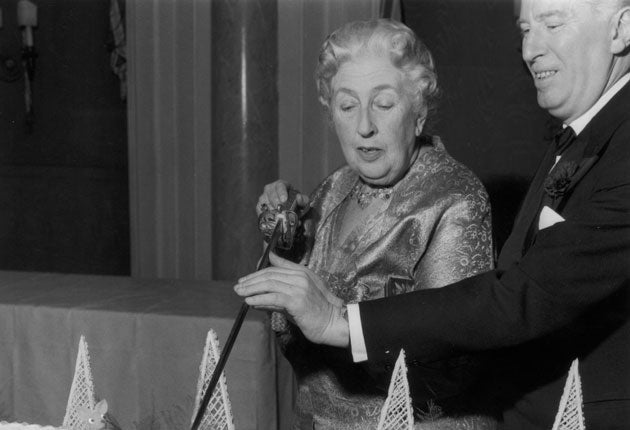Wikipedia springs 'Mousetrap' ending
Agatha Christie's fans and family join the protest against the revelation of theatre's best-kept secret

First WikiLeaks stood accused of unnecessarily revealing closely guarded secrets. Now it's Wikipedia's turn. The online encyclopaedia is refusing to yield to criticism from Agatha Christie's family for revealing the ending of The Mousetrap, the world's longest-running play.
Anyone looking up her world-famous country-house whodunnit on Wikipedia is told the play is "known for its twist ending, which at the end of every performance the audience is asked not to reveal". But if they were to read on, they would be told, without warning, the identityof the murderer.
Fans of the author, famous for writing 80 murder mystery novels translated into more than 100 languages, have been petitioning the website to take down their spoiler, or at least include a warning. And now the Christie family has joined the chorus.
Matthew Prichard, Christie's grandson, was given the rights to The Mousetrap on his ninth birthday. This weekend he called the situation "unfortunate", telling The Independent on Sunday that he intended to take the matter up with the play's producer for the past 23 of its 58 years in the West End, Sir Stephen Waley-Cohen.
"My grandmother always got upset if the plots of her books or plays were revealed in reviews – and I don't think this is any different," he said. "I think it is a pity if a publication, if I can call it that, potentially spoils the enjoyment for those people who go to see the play. It's not a question of money or anything like that. It's just a pity."
Wikipedia's policy on the matter has been the subject of extensive debate within its committee, who are members of the public approved to contribute to the site. When asked what the site's policy on the matter is, a spokesman said: "Our purpose is to collect and report notable knowledge. It's exceedingly easy to avoid knowing the identity of the murderer: just don't read it. Asking Wikipedia not to reveal the identity of the murderer is like asking a library to remove copies of The Mousetrap book from shelves because someone could just go and read the end."
However, another approved Wikipedia committee member disagrees. "I would argue that, however trivial it may appear, the revelation of the ending breaches an oral contract between the actors and the audience. Such is the fame of the secrecy that an audience member cannot reasonably attend without knowing their role to play in guarding it, and thus an oral contract, implied in fact, has taken place. Given the importance of Wikipedia on the internet, I believe that they have a duty to protect this contract, as its breach is completely disrespectful of an old and well-kept tradition."
Wikipedia's policy on spoilers appears to differ in other countries, and in France and Italy the play's twist is alluded to but not revealed, while in Germany it is. The matter has been repeatedly discussed by English-language Wikipedians, with a policy formulated in 2007 deciding to remove "all spoiler warnings" across the site.
Mr Prichard said: "I don't pretend to be an expert on Wikipedia or modern technology. All I can tell you is that from the point of view of the theatre-going public, I think it does spoil the enjoyment of those going to have an entertaining evening at the theatre – one part of which is to guess who the murderer is."
The Mousetrap premiered in London in 1952, with Richard Attenborough in the original cast, and has never stopped running since, clocking up more than 24,000 performances, though these days it is seen mostly by tourists. The rules of its licence dictate that only one production can be performed outside the West End per year, helping to preserve the identity of the murderer of Monkswell Manor.
Join our commenting forum
Join thought-provoking conversations, follow other Independent readers and see their replies
Comments